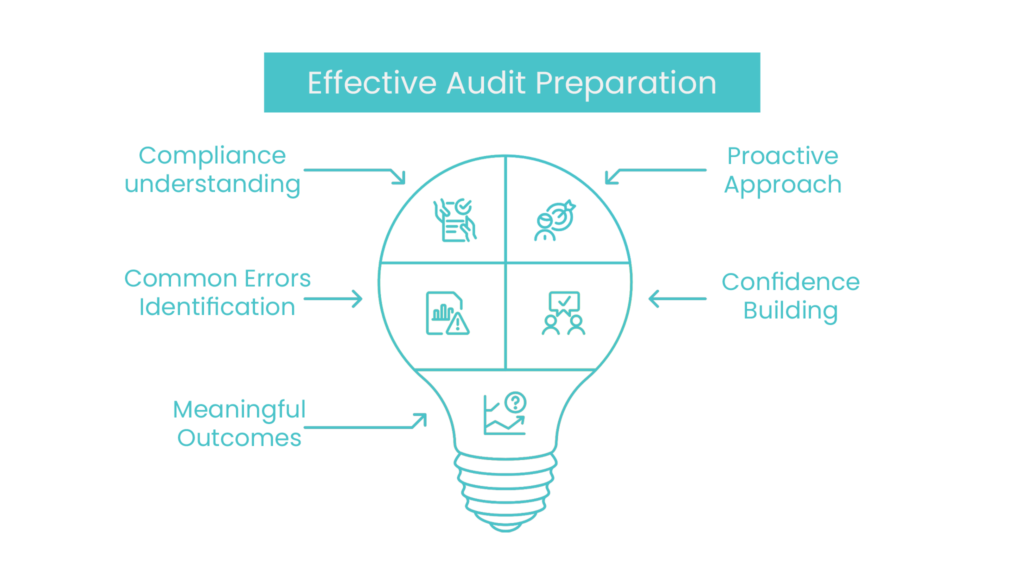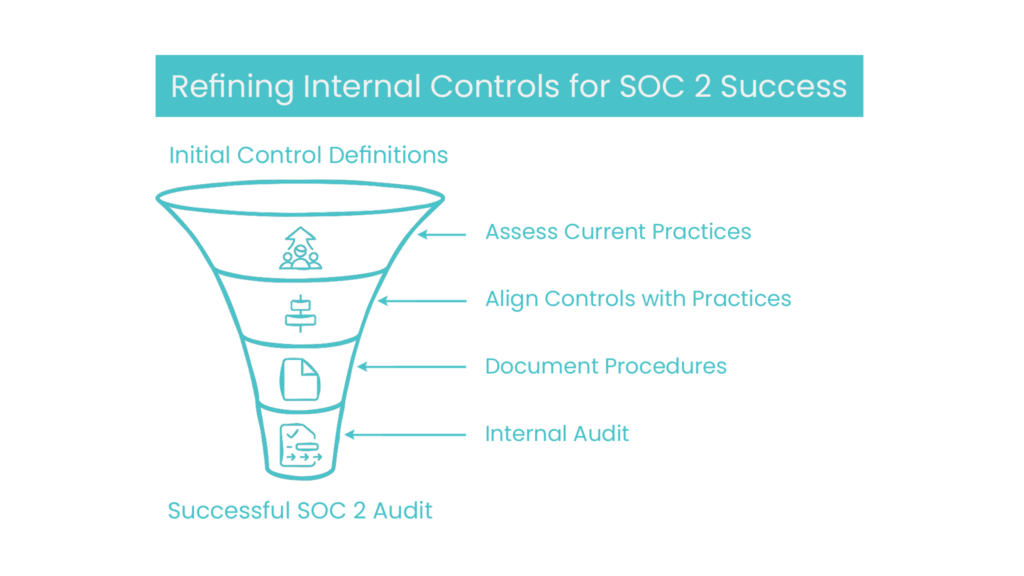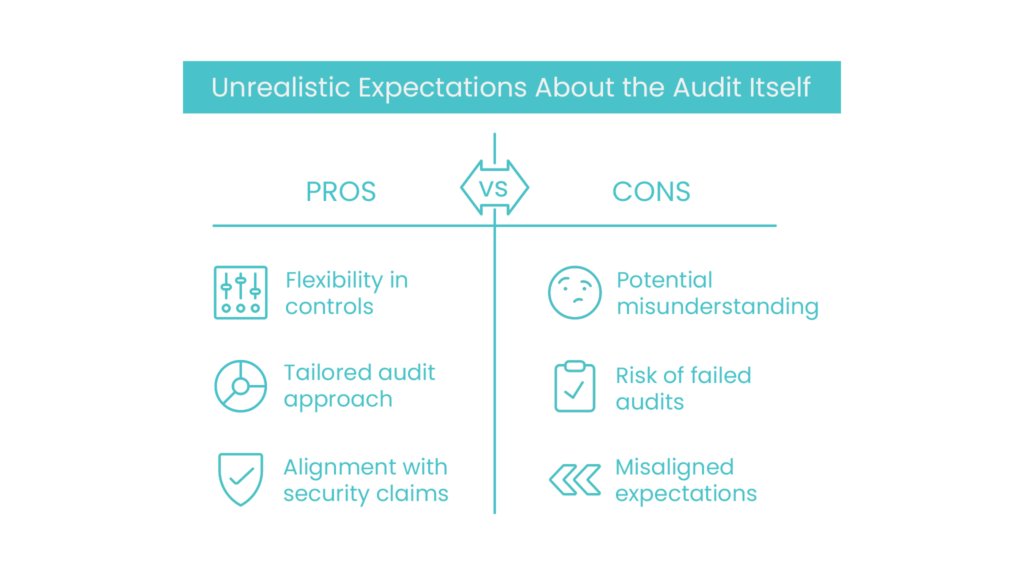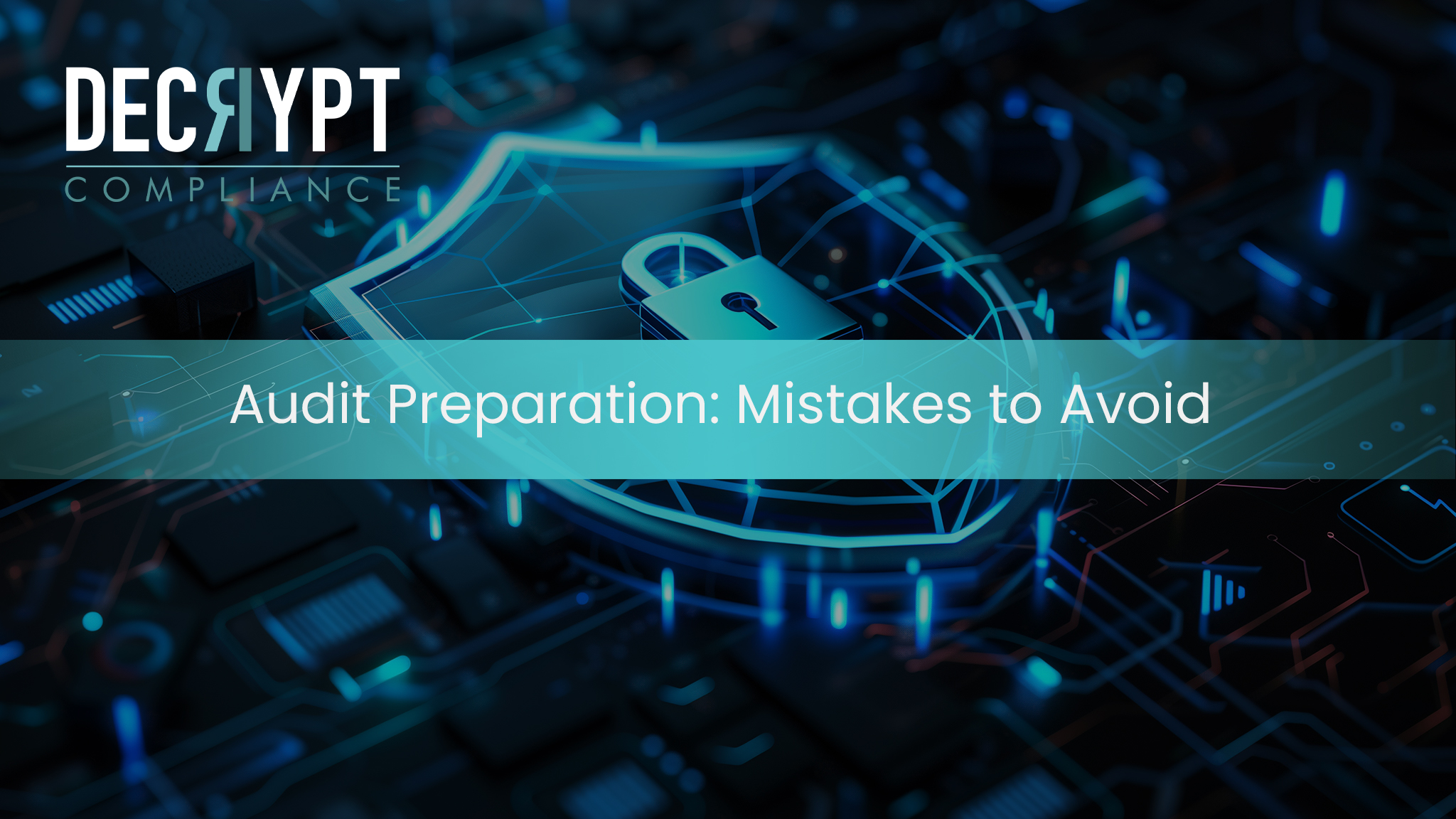Compliance audits are an essential element of building trust among your clients and peers. Being able to reliably test your internal controls against industry and international standards demonstrates a commitment to customer trust and operational quality. Whether you’re preparing for a standard ISO certification audit or a more customized SOC 2 audit, it’s important to understand how impactful your approach can be.
A proactive approach ensures your audit reflects the actual security and operational controls in place, saving you from potential pitfalls that make the process less efficient and effective. By identifying common errors ahead of time, your business can approach the process confidently, achieving more meaningful and valuable compliance outcomes.

Poorly-Defined Internal Controls
Properly defining and testing against practical internal controls are central to a successful SOC 2 audit, but many businesses fail to define them properly. An internal control framework should accurately reflect how your organization operates today, not how you aspire to operate in the future. Misaligned or overly ambitious controls risk confusion for your auditor, making it difficult for them to verify your compliance claims.

For example, if your auditor is attempting to verify a claim that the company IT department responds to and handles breaches within 24 hours, but there are no internal policies to enforce a quick response, you likely have a poorly defined control. Does the IT department respond within 24 hours? How does the IT department accurately measure its ability to meet the 24-hour commitment? Is it actually up to members of other departments to step in when the IT department does not have time to respond within 24 hours? A more accurately defined control would point directly to policies and procedures that are implemented and enforced rather than making promises that aren’t kept.
This disconnect creates challenges for auditors attesting to your adherence to claims you make around your company’s practices. To avoid this, businesses should audit their controls internally before the official audit, ensuring they align with actual practices and can be clearly documented. A well-defined, realistic framework ensures a smoother process and prevents misunderstandings.
Unrealistic Expectations About the Audit Itself
SOC 2 audits differ significantly from other frameworks like ISO certifications. While ISO audits rely on a predefined set of controls, SOC 2 allows companies to define their own controls, provided they adhere to AICPA criteria. This flexibility is beneficial but can also lead to misunderstandings about the audit process.

SOC 2 auditors evaluate how well your specific controls align with the security claims you make to your customers. This nuanced approach requires thoughtful preparation and a tailored audit approach rather than a one-size-fits-all mindset. Organizations must approach the audit with a clear understanding of their unique requirements and ensure they have evidence to support those claims. Without this, businesses risk failed audits or misaligned expectations, leading to wasted time and resources.
Focusing on the Wrong Compliance Results
Compliance and audit readiness are not the same. While many companies perform their operations well, they often struggle to document the evidence needed to demonstrate compliance to an independent auditor. Verbal assurances or informal processes may suffice internally, but audits require unbiased, objective proof.
For SOC 2, this means keeping a detailed digital trail to back up your claims. Activities like tracking system changes, logging incidents, and maintaining security policies all provide evidence that auditors can evaluate. Aligning your audit strategy with the expectations of your target market is also key. A SOC 2 report isn’t just a stamp of approval; it’s a tool to build trust with the clients you aim to attract. By focusing on meaningful compliance outcomes, you position your business as a credible partner in the eyes of your audience.
An auditor isn’t sifting through company documents and working with you with the sole intention of uncovering problems. In fact, auditors are typically trying to do their best to attest to what you’re claiming. Preparing and setting the right expectations centered on the right audit results only supports your company.
Working with the Wrong Auditor
Choosing the right auditor is crucial to the success of your compliance efforts. Not all auditors approach SOC 2 with the same level of rigor or understanding of your industry. Decrypt Compliant specializes in SOC 2 audits tailored to your business needs and industry, focusing on the value compliance brings to your operations. Contact Decrypt Compliance to ensure your next audit is efficient, effective, and aligned with your goals. Let’s talk about how we can help you prepare for and undergo a successful audit that drives real business value.






